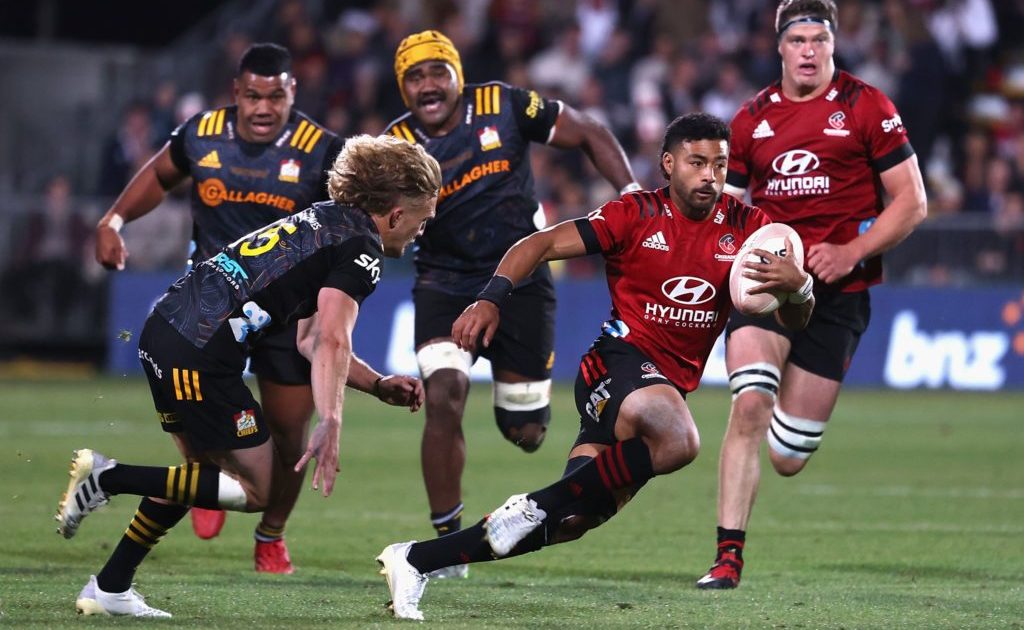How the Super Rugby Pacific finals series could impact the competition

When the format for the inaugural Super Rugby Pacific competition was announced, fans had one major trepidation.
The fact that some teams would have slightly easier draws due to the fact that they would each play three additional matches on top of their one-off games against every other side was a small issue, amplified when the draw was adjusted due to Covid.
But the bigger gripe was with the eight-team finals series.
Just 12 teams are taking part in Super Rugby Pacific, meaning that three-quarters of the competitors will qualify for the knockout matches at the end of the season. On the one hand, it means that there likely won’t be too many dead-rubber matches throughout the competition but on the other, it means the stakes aren’t especially high throughout the year; even if you drop well over half your games, you could still feature in the finals.
It’s a stark contrast to last year’s Super Rugby Aotearoa and AU competitions, where the competition was so fierce and every game mattered. That pressure was turned up to 11 in Super Rugby Trans-Tasman, where the Crusaders missed out on playing in the grand final despite winning all five of their matches, with an average margin of almost 20 points.
This year, that pressure is going to be turned down considerably but, at least according to Chiefs head coach Clayton McMillan, that won’t significantly change how teams approach each match.
“Our mindset is to win every game,” he said last week. “It’s dangerous territory to think that you can sneak your way into the top eight and then work your way to the top. There’s always advantages to being further up the ladder than there is down the bottom.
“We certainly don’t want to get to the last few games and have to be worrying about winning games or needing other teams to give us any favours.”
Normally that advantage would be getting to play in front of a packed home crowd but with Covid continuing to cause issues, that’s not guaranteed this year. Already, the New Zealand-based sides are relocating to Queenstown for the opening weeks of the competition where matches will be played at neutral venues (except, of course, in the Highlanders’ case), likely with limited crowds able to attend.
With NZ’s strict travel regulations, there’s also a very real possibility that the latter half of the competition could be played in its entirety in Australia, which would again minimise any benefits of being the ‘home team’ in a play-off situation.
Of course, the other benefit of a higher seeding is easier fixtures in the formative stages of the finals but while that may keep you in the competition a little longer, you would still need to beat the best teams to win the trophy at the end of the day.
As such, the benefits of a higher ranking in the 2022 finals could be relatively minimal.
There is one major pro of an extended finals series, especially after the way the past two seasons have played out.
With every game so important throughout 2020 and 2021, coaches were rarely able to deviate from their preferred line-ups. There were never any easy matches (at least during the Aotearoa and AU competitions), so the likes of Richie Mo’unga, Damian McKenzie and Rieko Ioane were required to suit up week after week. In some ways, it really hindered the development of New Zealand and Australia’s next tier of players coming through the ranks.
In 2022, things might look a bit different in that regard – not that you should expect to see wholesale changes every week by any stretch of the imagination.
“What a longer competition does is it probably gives you a little bit more scope to rotate your players a little bit,” McMillan said. “But we all know that cohesion, getting the majority of your starters out regularly playing together pays dividends in the long run so that’ll kind of be our strategy.
So while there should be some more diversity in selection than we’ve become accustomed to over the past two seasons, the extended play-off series shouldn’t lead to any complacency in 2022.
Super Rugby Pacific kicks off on February 17 with Moana Pasifika taking on the Blues.











































































